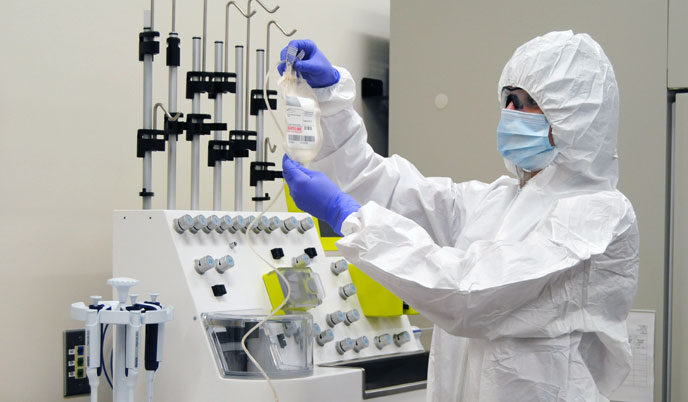
Cell therapy for Sjögren’s disease earns FDA Fast Track designation
A therapy currently being tested in a clinical trial at the University of Wisconsin School of Medicine and Public Health to treat a common symptom of Sjögren’s disease recently got a boost from the Food and Drug Administration.
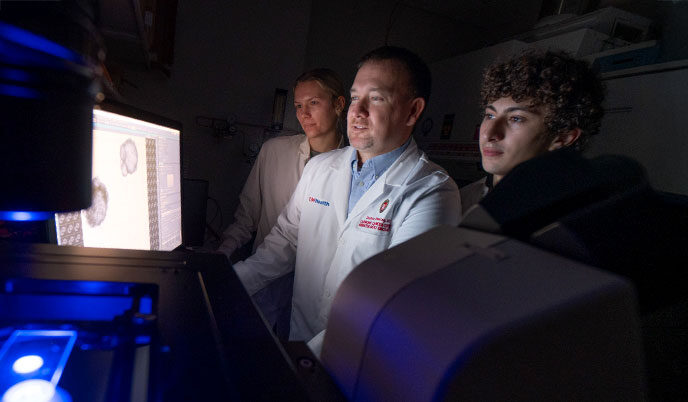
UW–Madison and Immuto Scientific to collaborate on novel cancer target discovery
University of Wisconsin–Madison and Immuto Scientific have officially entered into a collaborative agreement to identify disease-specific, novel therapeutic targets in colorectal cancer.
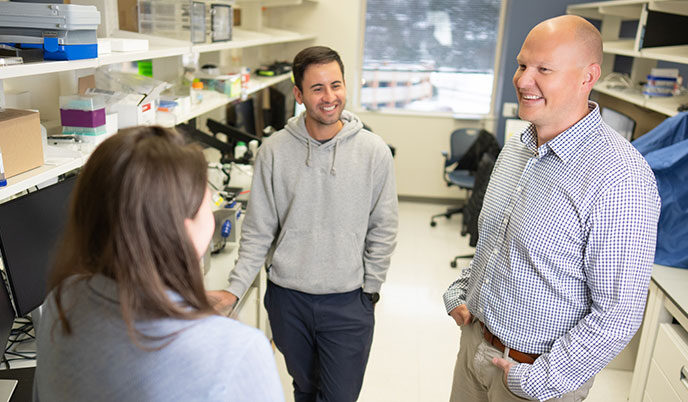
Q&A: Christopher Sundberg on the role of muscles in the aging process
What determines healthspan, the term used to describe the number of years people live in good health and free from chronic disease? Muscle physiology plays a key role.
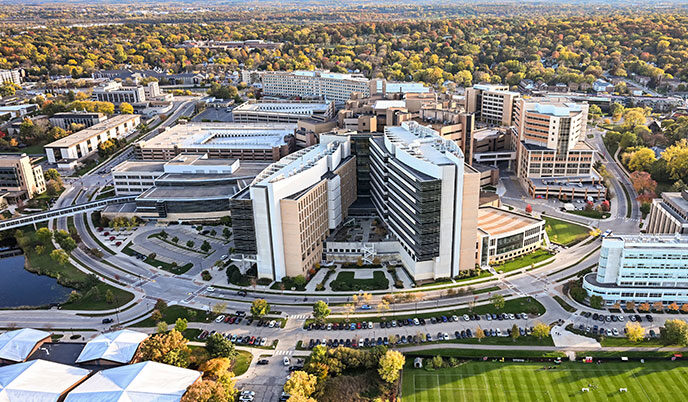
Top ten research stories for 2025
The numbers are in — the end-of-year web analytics, that is — and they show robust interest in research at the UW School of Medicine and Public Health! In 2025, articles about new discoveries and one-on-one interviews with researchers were among the most-viewed stories of the year.
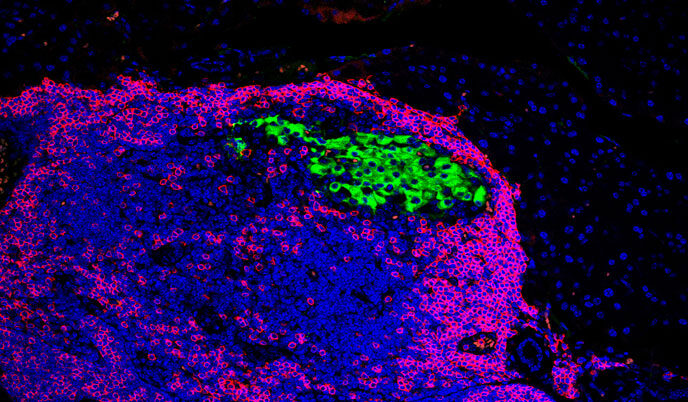
Disabling one gene protects mice against Type 1 diabetes
UW–Madison researchers have uncovered a possible way to protect key cells in the pancreas that are targeted during the development of Type 1 diabetes.

AI technology for clinical documentation aids efficiency and reduces burnout
A randomized trial showed that ambient AI notetaking can help reduce health care practitioner burnout by reducing time spent documenting clinical notes.
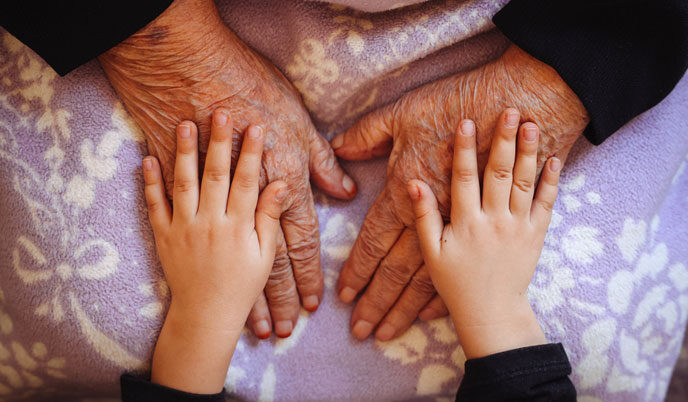
UW launches new research center to examine aging and age-related diseases
A new research center at the University of Wisconsin School of Medicine and Public Health will focus on understanding how metabolic changes associated with aging influence health and cause disease.
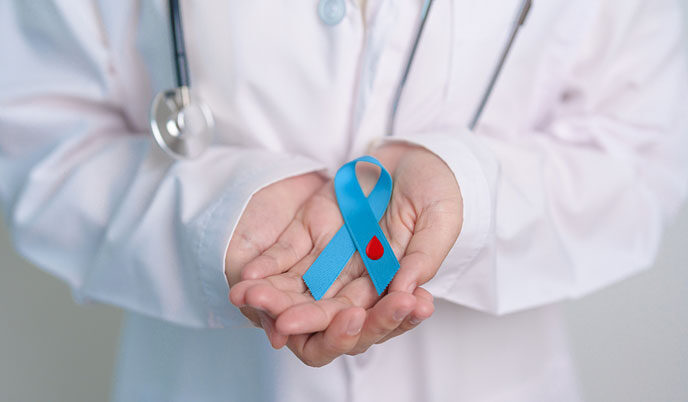
UW researchers tackle diabetes from multiple angles
Diabetes is a growing epidemic in Wisconsin. Its rise has been linked to limited access to healthy food and health care in some communities, lower levels of physical activity, and a rise in obesity, among other factors.
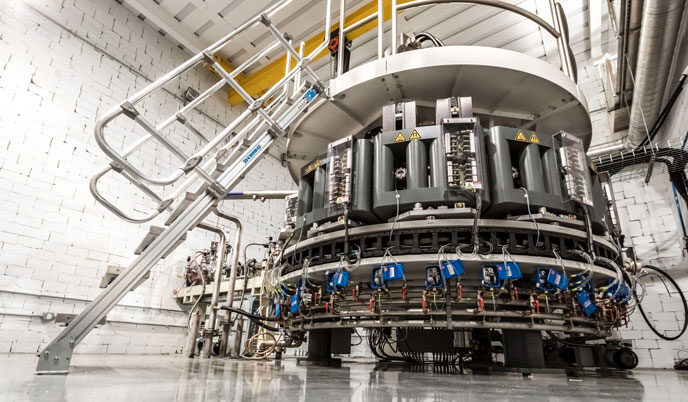
Radiopharmaceutical research agreement signed with NorthStar Medical Radioisotopes
A new agreement between the University of Wisconsin School of Medicine and Public Health and NorthStar Medical Radioisotopes, LLC (NorthStar) is aimed at advancing research and supporting workforce development in the nuclear medicine sector.

Q&A: Joshua Lang on new research on treatment-resistant prostate cancer
A five-year, $12.5 million grant has been awarded to researchers at UW–Madison to investigate metastatic, or advanced stage, prostate cancer, the second most common cause of cancer death in men.
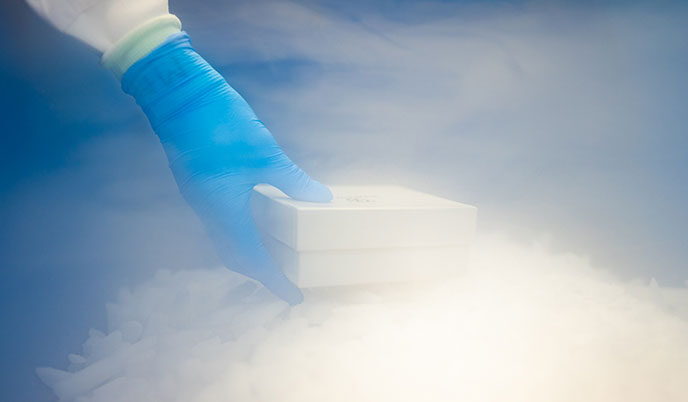
Alzheimer’s blood test validated with help from UW–Madison data
The first blood plasma test to identify hallmarks of Alzheimer’s disease was cleared in May by the U.S. Food and Drug Administration (FDA), and University of Wisconsin researchers provided a portion of the samples used in the clinical validation test.
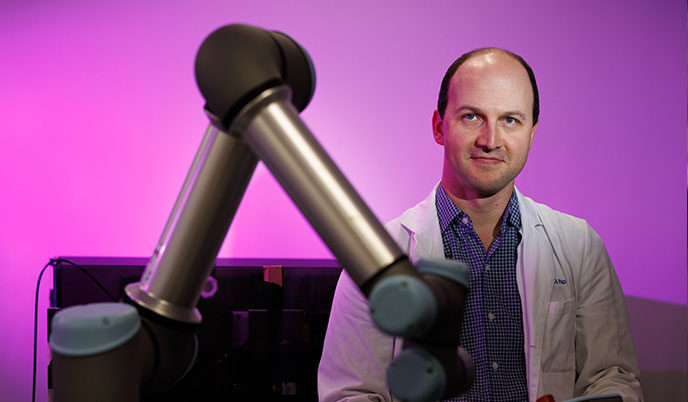
Q&A: Daniel Buckland on space medicine and medical technology
A space medicine fellowship, robots in the emergency room, and machine learning tools to improve clinical workflow are among the innovations Dr. Daniel Buckland, an associate professor in the BerbeeWalsh Department of Emergency Medicine, intends to explore within the University of Wisconsin School of Medicine and Public Health and UW’s College of Engineering, where he holds an affiliate governance appointment.